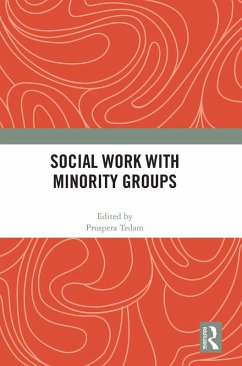
Groups and Group Rights
Versandkostenfrei!
Versandfertig in 1-2 Wochen
24,99 €
inkl. MwSt.

PAYBACK Punkte
12 °P sammeln!
In matters such as affirmative action or home schooling, rights of ethnic and other minority groups often come into conflict with those of society in a culturally diverse population such as ours. But before considering the dilemmas posed by these issues, we must first ask such basic but important questions as what group rights are and how they intersect with the principles of democracy. This new collection brings together some of today's leading thinkers from the cutting edge of these debates, taking in a broad range of issues confronting philosophers, sociologists, and political scientists. C...
In matters such as affirmative action or home schooling, rights of ethnic and other minority groups often come into conflict with those of society in a culturally diverse population such as ours. But before considering the dilemmas posed by these issues, we must first ask such basic but important questions as what group rights are and how they intersect with the principles of democracy. This new collection brings together some of today's leading thinkers from the cutting edge of these debates, taking in a broad range of issues confronting philosophers, sociologists, and political scientists. Contributors such as Carl Wellman, Carol Gould, and Rex Martin examine the nature of groups and the conflict between group rights and democracy and also consider case studies depicting current issues in cultural, ethnic, and religious rights. The first section, on the nature of groups, examines some of the perplexing alternatives in the formulation of a theory of group rights. These articles investigate the kinds of rights minorities might claim and ask when groups can be held responsible for the acts of some of their members. The second section addresses the treatment of groups in a democracy and the precarious balance between indifference toward minorities and capitulation to their demands. Here the contributors examine five principles for the sensitive treatment of minority and disadvantaged groups in a democratic society. A final section explores specific conflicts between subgroup and societal claims through case studies dealing with affirmative action, religious practice and the education of children, and the land rights of indigenous peoples. By drawing on the legal and political dilemmas related to these cases, the authors confront issues of core versus peripheral interests, of individual member versus subgroup rights, and of the possibilities for social openness raised in the preceding sections Written from varied perspectives, Groups and Group Rights offers stimulating reading for both students and professionals as it takes on some of the most pressing dilemmas confronting our society.












